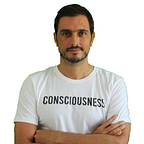Achieving Sustainability: A Call to Redefine Our Global Economic Model.
We will not resolve our sustainability problems with the same economic thinking that has created them.
After 10 years working in the corporate sector as a senior management and expert consultant, I have lost complete faith in the current economic paradigm’s ability to resolve the sustainability crisis it has caused.
Here are some of the reasons:
1- Improving social and environmental conditions is expensive, it generally means an increase in cost and a loss of profitability. It can be done on niche markets but not at the needed scale.
2- Exploitation is incentivized, regeneration isn’t. Eg: a dead fish on the market has market value, not a live fish in the ocean. So people are incentivized to exploit natural resources, not to let them regenerate. It logically ends up with planetary overshoot and a global-scale tragedy of the commons — what is happening today.
3- All economic actors are in competition for short-term profits, unlimited accumulation of capital, and growth. The most competitive actors are generally those who come with a high social and environmental footprint. Competition dominates, and collaboration is marginalized.
4- Profits/ money over everything: ultimately, the market economy only selects profitable solutions. Yet what we should do, such as stopping single-use plastics and overall reduction of consumption and waste is not profitable. Hence it is not done.
5- A thriving society is bad for the economy. A contented population is bad for consumerism. A healthy population is bad for the pharma industry. World peace is bad for the military-industrial complex. No financial debt is bad for banking etc. Decisively resolving our real-world problems would be catastrophic for GDP and the current economy.
Etc. etc.
I am not saying that we should not use the current economic models to design solutions, or that we should have a state-controlled communist dictatorship.
My point is that if we are serious about achieving a regenerative transition, we need to give time and space to consider, develop, and support new economic paradigms that are thought to respond to the great challenge of our times, such as:
- Degrowth Economy: abandoned GDP growth and focus on key social, ecological, and economic metrics.
- Well-being Economy: an economy designed to serve people and the planet, not the other way around.
- Doughnut Economy: an economy designed to respect social and ecological boundaries.
- Regenerative Economy: moving away from extractive business models and unlocking the potential for positive contributions to nature and society.
Embarking on this journey provides us with a chance to reassess our values and priorities, breaking free from the obsolete norms of our prevailing consumerist model. It’s a reconnection with our creative power, enabling us to redesign systems crafted for the challenges of a bygone era. This conscious transformation of our society is pivotal for unlocking new potential for the human species.
Let’s keep learning and acting together toward the future our hearts know is possible.
P.S: That message was posted on a large WhatsApp “sustainable business” group. It was deleted and it got me expelled from the group. By luck, I was able to save it. I believe it would be a pity to see it go to waste.
